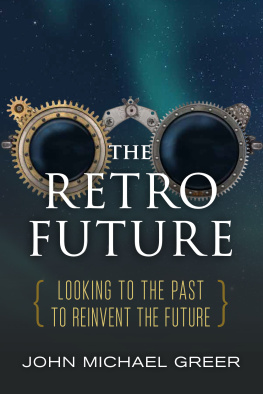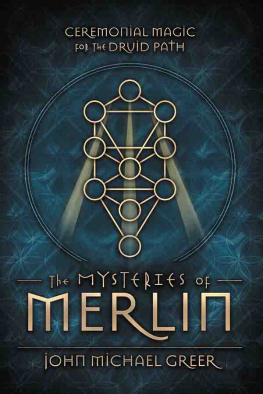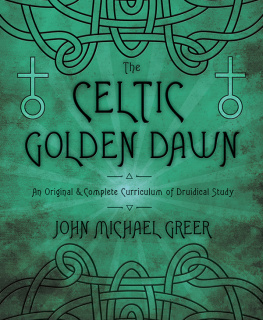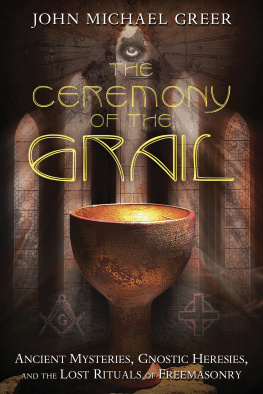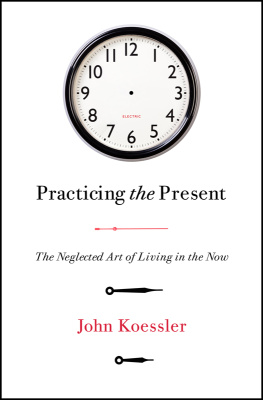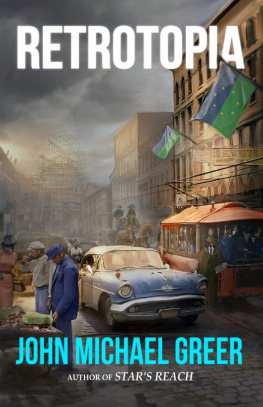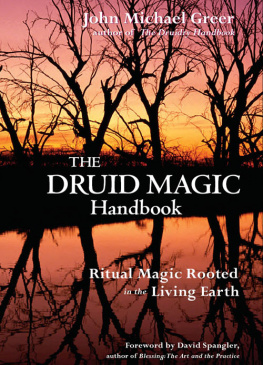John Michael Greer - The Retro Future: Looking to the Past to Reinvent the Future
Here you can read online John Michael Greer - The Retro Future: Looking to the Past to Reinvent the Future full text of the book (entire story) in english for free. Download pdf and epub, get meaning, cover and reviews about this ebook. year: 2017, publisher: New Society Publishers, genre: Politics. Description of the work, (preface) as well as reviews are available. Best literature library LitArk.com created for fans of good reading and offers a wide selection of genres:
Romance novel
Science fiction
Adventure
Detective
Science
History
Home and family
Prose
Art
Politics
Computer
Non-fiction
Religion
Business
Children
Humor
Choose a favorite category and find really read worthwhile books. Enjoy immersion in the world of imagination, feel the emotions of the characters or learn something new for yourself, make an fascinating discovery.
- Book:The Retro Future: Looking to the Past to Reinvent the Future
- Author:
- Publisher:New Society Publishers
- Genre:
- Year:2017
- Rating:5 / 5
- Favourites:Add to favourites
- Your mark:
- 100
- 1
- 2
- 3
- 4
- 5
The Retro Future: Looking to the Past to Reinvent the Future: summary, description and annotation
We offer to read an annotation, description, summary or preface (depends on what the author of the book "The Retro Future: Looking to the Past to Reinvent the Future" wrote himself). If you haven't found the necessary information about the book — write in the comments, we will try to find it.
John Michael Greer: author's other books
Who wrote The Retro Future: Looking to the Past to Reinvent the Future? Find out the surname, the name of the author of the book and a list of all author's works by series.
The Retro Future: Looking to the Past to Reinvent the Future — read online for free the complete book (whole text) full work
Below is the text of the book, divided by pages. System saving the place of the last page read, allows you to conveniently read the book "The Retro Future: Looking to the Past to Reinvent the Future" online for free, without having to search again every time where you left off. Put a bookmark, and you can go to the page where you finished reading at any time.
Font size:
Interval:
Bookmark:
Praise for The Retro Future
As John Michael Greer writes in The Retro Future: Looking to the Past to Reinvent the Future, when youve driven down a blind alley and are sitting there with your bumper pressed against a brick wall, the only way forward is by backing up... staying stuck against the brick wall leads nowhere useful. His call is not to a tribal or Stone Age existence, but rather, a return to things that actually work. Greer calls for retrovationthat is retro plus innovation rather than forsaking the old because we assume that all things new are superior. Its time to redefine progress in this way rather than using the latest technology to dig our heels into the illusion that nothing is wrong at all. Engaging, witty, and exemplary of the Greer style weve come to love and rely on, The Retro Future will not disappoint. In fact, it may reassure you that in many instances, your ancestors got it right.
Carolyn Baker, Ph.D., author, Love In The Age of Ecological Apocalypse and Dark Gold: The Human Shadow And The Global Crisis.
Whether or not you accept John Michael Greers argument that a deindustrialized future is inevitable, youll appreciate his call for the freedom to select the best technologies of the pastworthy and sustainable tools, not pernicious prosthetics. Greers vision of a post-progress world is clear, smart, and ultimately hopeful.
Richard Polt, professor of philosophy, Xavier University; author, The Typewriter Revolution: A Typists Companion for the 21st Century
What might your life be like without an automobile, TV, or a mobile phone? Ask John Michael Greer, who lives that way and recommends it as practice for the soon-to-be-normal. Greer says we are embarked upon the post-progress era. Climate change, loose nukes, and resource exhaustion are among its many challenges. In The Retro Future, Greer looks backward to mark the way forward.
Albert Bates, author, The Post-Petroleum Survival Guide, The Biochar Solution, and The Paris Agreement.
The prevailing assumption is that you will accept every bit of new technology, whether enthusiastically or grudgingly, or you wont be able to spend your life in a box, tethered to a gadget, looking at colored pixels. Greers book discards this assumption: it is up to you to order your technology la carte, plus the box and the gadget are soon going away in any case. And the stunning bit of news is, most of the recent technological progress has been in the direction of shoddy, inconvenient, short-lived, buggy time-wasters, so there is a lot for you to reject.
Dmitry Orlov, author, Reinventing Collapse and Five Stages of Collapse

Copyright 2017 by John Michael Greer.
All rights reserved.
Cover design by Diane McIntosh.
Glasses iStock (523394612); night sky iStock (531473846).
Numbers Vrender; initial caps jro-grafik; p. 1 lisaalisa_ill / Adobe Stock.
Printed in Canada. First printing September, 2017.
Inquiries regarding requests to reprint all or part of The Retro Future
should be addressed to New Society Publishers at the address below.
To order directly from the publishers, please call toll-free (North America)
1-800-567-6772, or order online at www.newsociety.com
Any other inquiries can be directed by mail to:
New Society Publishers
P.O. Box 189, Gabriola Island, BC V0R 1X0, Canada
(250) 247-9737
LIBRARY AND ARCHIVES CANADA CATALOGUING IN PUBLICATION
Greer, John Michael, author
The retro future : looking to the past to reinvent the future / John
Michael Greer.
Includes bibliographical references and index.
Issued in print and electronic formats.
ISBN 978-0-86571-866-1 (softcover).ISBN 978-1-55092-658-3 (PDF).
ISBN 978-1-77142-253-6 (EPUB)
1. Progress. 2. Regression (Civilization). 3. Civilization, Modern
21st centuryForecasting. I. Title.
HM891.G745 2017 | 303.44 | C2017-903762-5 |

New Society Publishers mission is to publish books that contribute in fundamental ways to building an ecologically sustainable and just society, and to do so with the least possible impact on the environment, in a manner that models this vision.

In a certain sense, this book is part of a trilogy, though it differs from most trilogies in that the books can be read in any order. The books in question came into being out of a growing sense on my part that the predicament of our time could not be understood from within the conventional wisdom that created it, and that the most important element of that conventional wisdomthe heart of a secular belief system that shares most of the characteristics of a religionwas faith in progress.
My first explorations of that theme focused on understanding where the ersatz religion of progress came from and how the mismatch between faith in progress and the insistent reality of our societys failure to progressor, put more forcefully, of the opening stages of its declinewas likely to play out in the thought, imagination, and beliefs of people in the contemporary world. Those explorations eventually gave rise to a book, After Progress: Religion and Reason at the End of the Industrial Age. As that first reconnaissance reached clarity, I began two other related projects, both oriented toward figuring out what sorts of responses might be appropriate to the end of the age of progress.
One of those projects used narrative fiction to try to explore the prospects of a society that abandoned the religion of perpetual progress and, instead, allowed itself and its citizens to pick and choose among the technologies and lifestyles already explored by our species. That narrative became a novel, Retrotopia.conventional angle of nonfiction, and the result is the book you are holding in your hands right now.
As discussed later in this book, the idea of an end to progress is freighted with a great many irrational terrors and strange beliefs. Its far from uncommon for people to insist that any future that isnt defined by the endless elaboration of already overelaborate technologies must somehow involve going back to the caves or sinking into medieval squalor or being gobbled up by any of the other hobgoblins of the past with which the religion of progress threatens unbelievers. These reactions have deep emotional roots; for several centuries now, a vast number of people in the industrial world have allowed their sense of meaning, purpose, and value to depend on their assumed role in the grand onward march of progress from the caves to the stars, and letting go of that self-image is a very challenging thing.
That said, its not as though we ultimately have a choice. On the one hand, the exhaustion of nonrenewable resources and the buildup of pollutants in the atmosphere, the seas, and the soil are already starting to impose a rising spiral of costs on further attempts to make our technologies even more elaborate than they are today. On the other, its becoming increasingly clear to people in the industrial world that progress does not necessarily mean improvement, and that older and simpler technologies very often do a better job at their tasks than the latest hypercomplex, hightech equivalent. A growing number of people are thus beginning to turn aside from the products of progress. That these older, simpler technologies are very often less dependent on nonrenewable resources and less damaging to the biosphere that supports all our lives is just one benefit of that heretical but necessary act.
Next pageFont size:
Interval:
Bookmark:
Similar books «The Retro Future: Looking to the Past to Reinvent the Future»
Look at similar books to The Retro Future: Looking to the Past to Reinvent the Future. We have selected literature similar in name and meaning in the hope of providing readers with more options to find new, interesting, not yet read works.
Discussion, reviews of the book The Retro Future: Looking to the Past to Reinvent the Future and just readers' own opinions. Leave your comments, write what you think about the work, its meaning or the main characters. Specify what exactly you liked and what you didn't like, and why you think so.

